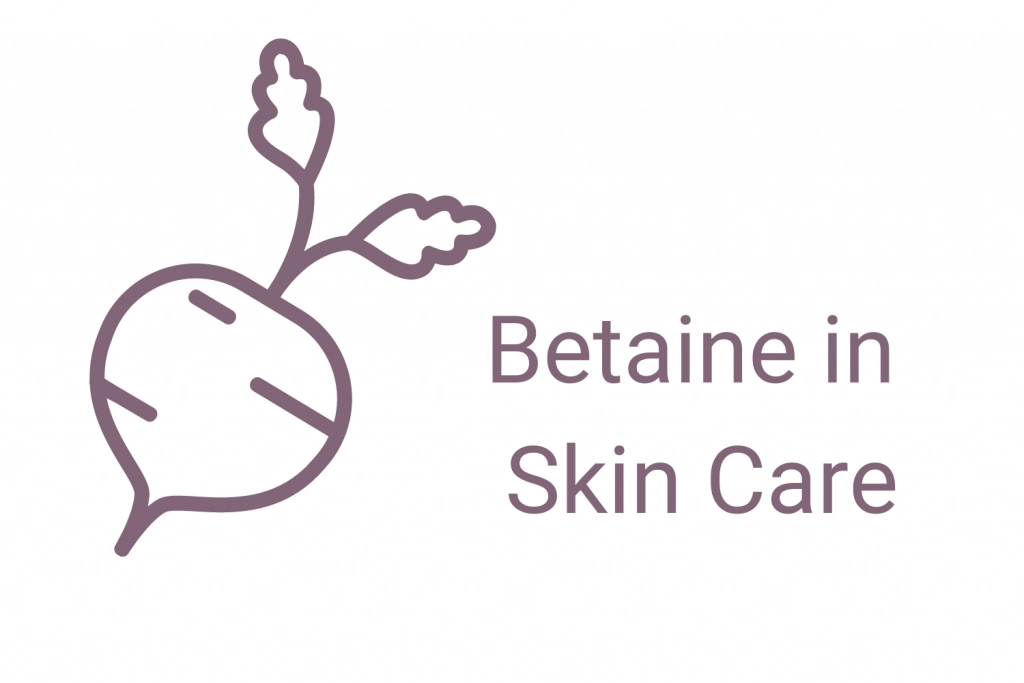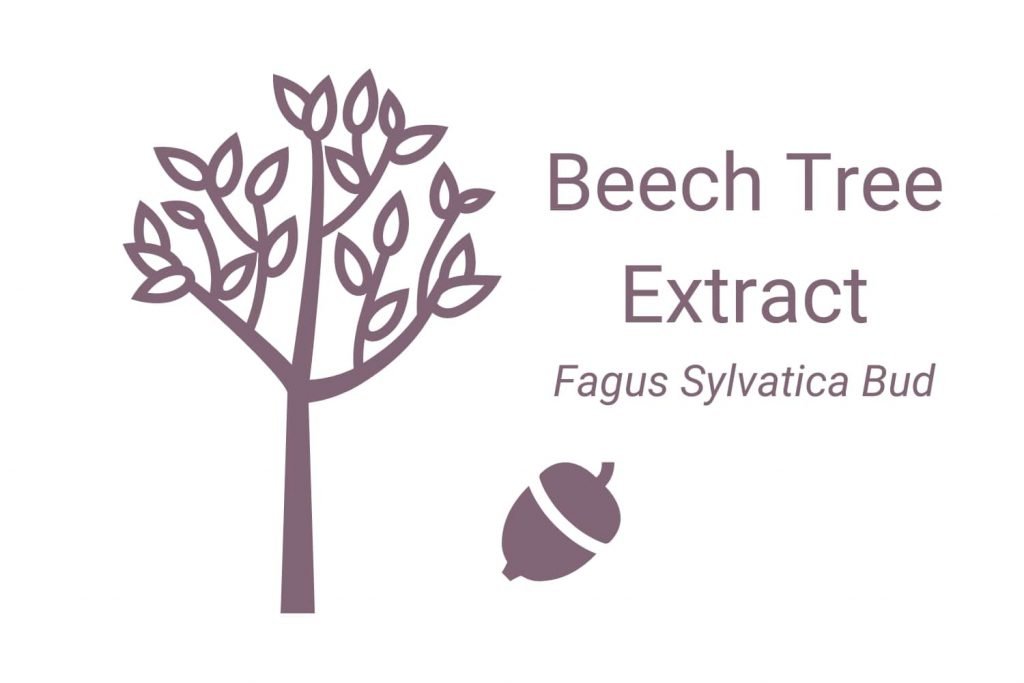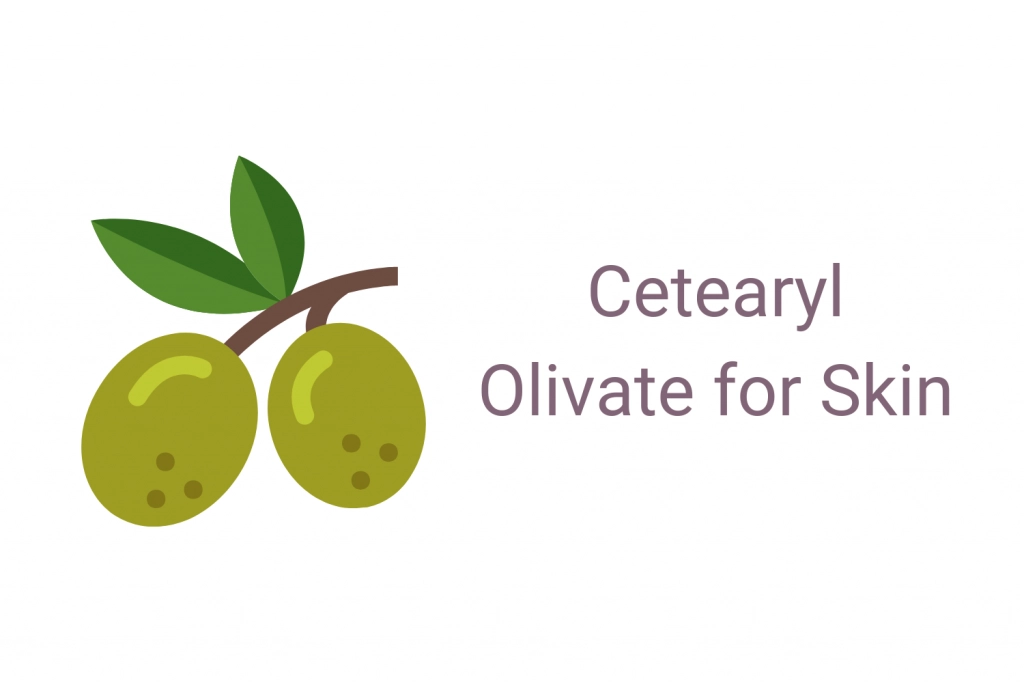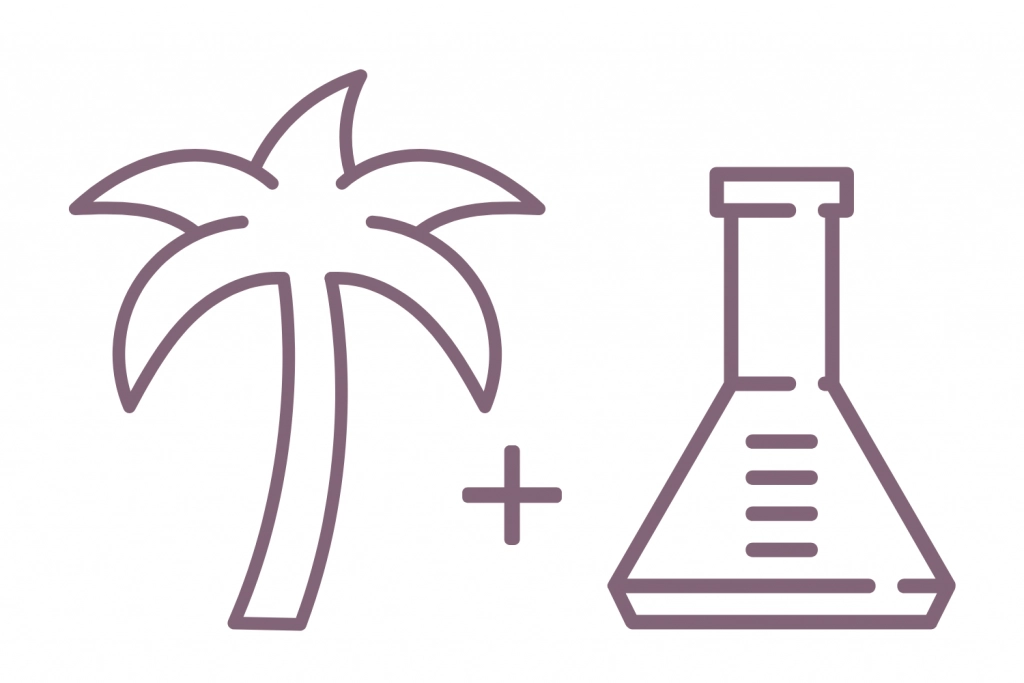This is one of the fun under-the-radar ingredients popular in the skincare space. Betaine is one of these examples. This plant derived ingredient helps hydrate the skin, but it isn’t talked about much.
This post may contain affiliate links. Read the full disclosure here
Even though it’s not as well-known it’s an ingredient to pay attention to! Let’s take a deeper look at the uses of betaine in skin care.
What Is Betaine?
Betaine is an amino acid commonly in hair care and skin care products. It occurs naturally in the body and in many different plants. For skin care, it’s often made from the sugar beet, but it comes from other plants too. It can be made synthetically too.
When synthetically produced with coconut, it’s referred to as cocamidopropyl betaine which is used as a surfactant.
Since betaine offers a number of direct benefits to the skin, it can be found in face masks, anti-aging products, and moisturizers. It’s in shampoos and other hair care products too, as it helps smooth and hydrate the keratin of your hair.
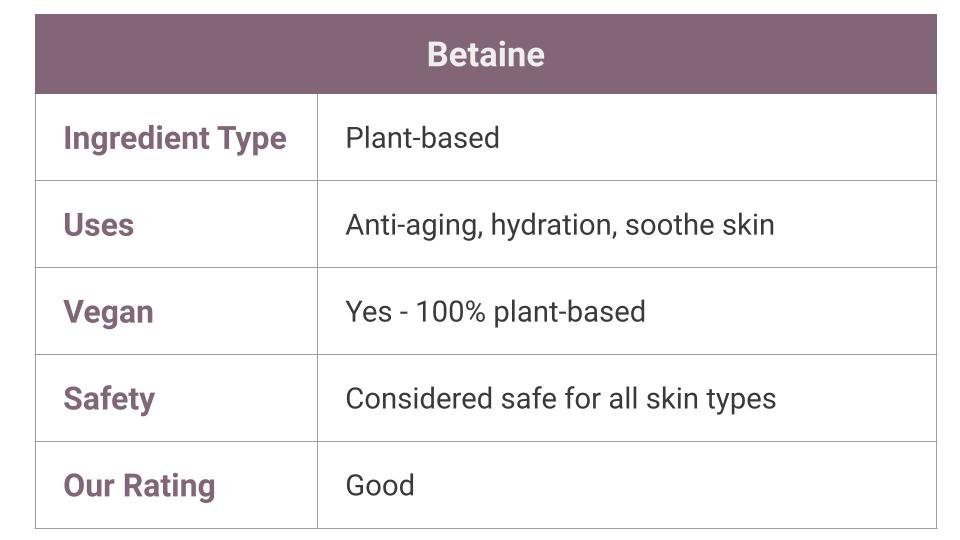
Betaine Uses & Benefits In Skincare
Betaine has many uses and benefits in skin care such as anti-aging, hydration, calming, and soothing the skin. Let’s take a deeper look at a few betaine skin benefits. This ingredient also works well with all skin types.
Anti-aging properties
It has skin smoothing and plumping effects that can help reduce the visible appearance of fine lines and wrinkles. By hydrating the skin properly, it can fill in creases in the face to reduce the appearance of fine lines and deep wrinkles. You’ll find betaine in creams and serums aimed at fighting aging skin.
Betaine helps the skin achieve a healthy, plump complexion.
Balances skin hydration
Betaine is a humectant, which means that it helps keep moisture inside your skin cells. This is one of the best betaine skin benefits. Not only that, but betaine is also an “osmolyte,” which means it can help your skin adapt to both moisture losses and gains. Betaine helps keep the skin healthy and hydrated without excess oiliness.
Many ingredients can help replenish moisture to the skin but this particular ingredient helps the skin retain the moisture if gets.
Soothing and calming on the skin
Beyond all of the above betaine skin benefits, it also has a soothing, calming effect on the skin. It’s less irritating than pure water, so it’s often used in skin products to soothe irritated or damaged skin. After a procedure like microdermabrasion, for example, a high-percentage betaine product can help protect and soothe the skin.
Anti inflammatory properties
It may help calm irritated or sensitive skin based on its anti inflammatory properties.
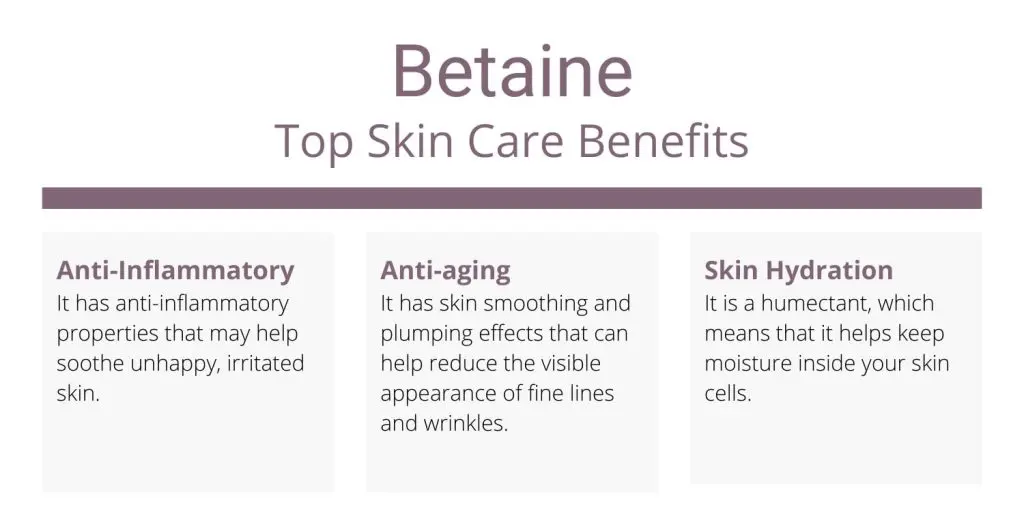
Is Betaine Vegan?
Yes. Betaine in skincare is completely vegan because it’s derived from plants like the sugar beet, or artificial sources. The production of betaine does not involve animals in any way.
However, make sure to check the labels of skincare products carefully. Products that contain betaine can contain other animal-derived ingredients, or be tested on animals. If you want vegan, cruelty-free products, always make to check the label for the particular product.
Is Betaine Safe To Use In Skincare?
Betaine is considered safe to use in skincare. It has a “low hazard risk” rating for external use and has no known serious side effects. The Cosmetic Ingredient Review (CIR) rated Betaine as safe to use in cosmetics when formulated to be non-irritating.
It’s even taken orally by some people, as it’s been approved by the FDA for the treatment of high urine levels of “homocysteine,” which is common in some inherited genetic disorders.
While betaine is safe for all skin types, cocamidopropyl betaine can irritate the skin. While high-quality processes to create cocamidopropyl betaine aren’t a concern, lower-quality cocamidopropyl betaine may cause allergies or irritation to the skin. Even though cocamidopropyl betaine is a different ingredient, it sometimes gets lumped together with betaine.
Also Known As:
Betaine is also sometimes called TMG, glycine betaine, and trimethylglycine. These terms all refer to the same basic skincare ingredient, so be on the lookout for these variations while you’re shopping for skincare products that contain betaine.
Other Anti-Aging Ingredients You May Like

